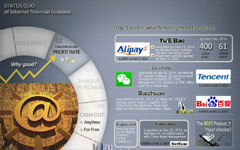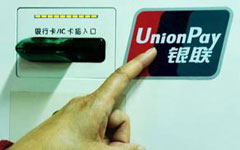Access to finance can improve the life of the poor
By Jin-yong Cai and Ajay Banga (China Daily) Updated: 2014-02-24 08:08Modern conveniences like e-money accounts, debit and prepaid cards, and low-cost accounts can go a long way to increasing financial access, reducing poverty, and empowering the poor. For example, people who rely on government benefits can use reloadable payment cards to buy necessities, withdraw cash from an ATM, or engage in a variety of other financial transactions.
|
 |
|
 |
Distributors in emerging markets spend up to two hours a day just handling and processing cash. Moving to digital payments could save valuable time and money. With innovations like that in mind, we're exploring ways to boost financial inclusion through initiatives in countries where financial inclusion will achieve the biggest impact - India, China, Indonesia, Pakistan, Nigeria, Brazil, Mexico and Vietnam.
More than 2,000 years ago in ancient Greece, Archimedes said: "Give me a long enough lever and a place to stand, and I will move the earth." We believe financial inclusion is one of the levers with the greatest potential for economic and social progress in the 21st century.
We hope the private sector seizes the opportunity - not as philanthropy, but as part of a new model to succeed commercially while benefiting society at large. It's possible to do well and do good. Let's all strive for that.
Jin-Yong Cai is executive vice-president and CEO of International Finance Corporation, a member of the World Bank Group, and Ajay Banga is the president and CEO of MasterCard.
- NHTSA says finds no 'defect trend' in Tesla Model S sedans
- WTO rare earth ruling is unfair
- Amway says 2014 China sales may grow 8%
- President Xi in Europe: Forging deals, boosting business
- CNOOC releases 2013 sustainability report
- Local production by Chery Jaguar Land Rover this year
- Car lovers test their need for speed in BMW Mission 3
- China stocks close mixed Monday

















